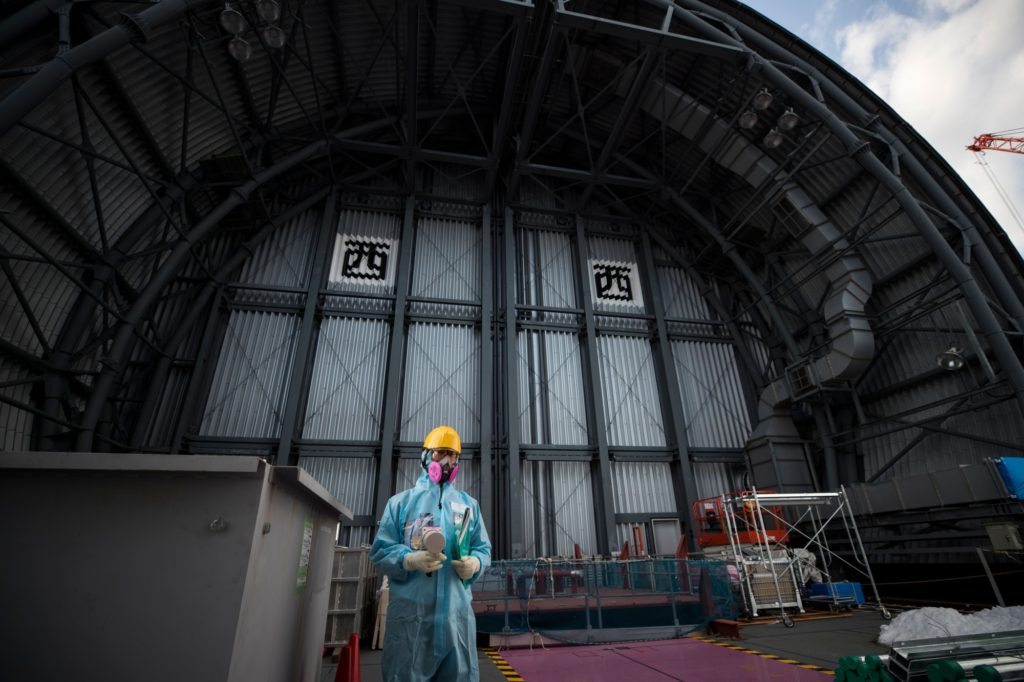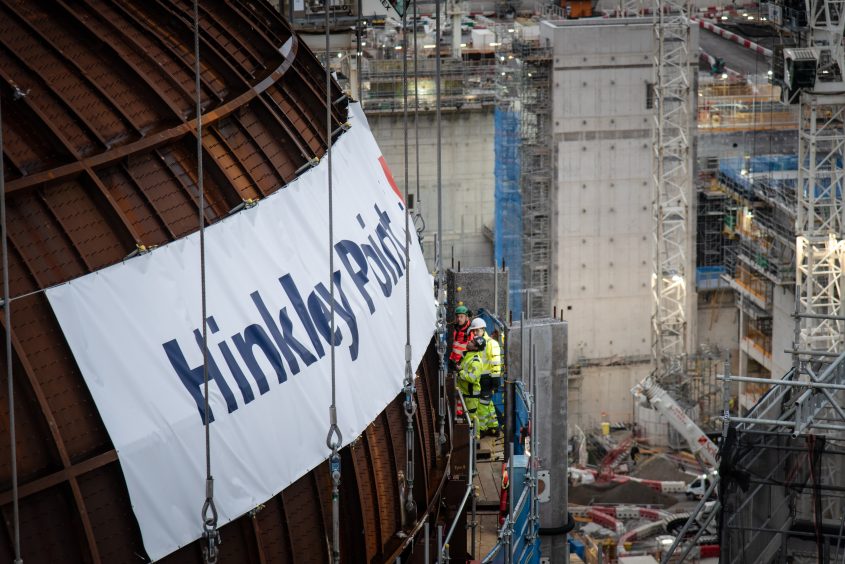
Ecotricity founder Dale Vince has demanded a formal review of the Sizewell C nuclear power station, and a new carbon capture project, over concerns costs have “ballooned” by tens of billions of pounds.
He has written to David Goldstone, the chair of the Treasury’s new Office for Value for Money (OVfM), asking him to examine plans to develop a new nuclear power project in Suffolk that he warned “will saddle consumers with higher bills long before it delivers a single unit of electricity”.
“Due to a novel funding method (RAB) a lengthy construction timeline for Sizewell will saddle consumers with higher bills long before it delivers a single unit of electricity at a time when there is clear evidence that we can secure a cleaner, cheaper energy future without nuclear,” said the renewable energy entrepreneur, who has donated money to the Labour Party.
The UK government is expected to shoulder about 40% of the project costs for Sizewell C, alongside French state-owned energy company EDF, while asking private investors to commit the remaining capital.
Centrica’s chief executive officer Chris O’Shea said this month that the British energy company was prepared to “walk away” from funding Sizewell C if certain conditions could not be met.
Other private investors that have reportedly entered talks with the government over funding the project include Schroders Greencoat, Equitix and Amber Infrastructure Group and Emirates Nuclear Energy Corporation.
Sizewell C has already cost UK taxpayers £3.7 billion, even before a final investment decision has been made, and another £2.7bn of spending is allocated towards the project for 2025-26, Vince warned.
He urged Goldstone to start a formal process to review what he described as two “really big spending commitments”, including Sizewell C and the Net Zero Teesside carbon capture project, which is expected to receive a share of £22bn of funding over 25 years.
The Sizewell C nuclear power project will be funded through a ‘regulated asset base’ model, a way of financing large infrastructure assets where the owner is licensed to charge a regulated price to consumers.
The funding method shares the project risks with the consumer to lower the cost, requiring some of the money to be paid by consumers on their energy bills.
The same model of funding was used to finance the construction and operation of the Thames Tideway Tunnel and Heathrow’s Terminal 5.
Earlier this month, campaign group Theberton and Eastbridge Action Group on Sizewell (Teags) lost a legal challenge against the Sizewell C nuclear plant in the High Court, which claimed that the project’s licence did not include adequate sea defences, a concern following the 2011 Fukushima disaster.
According to the government, under the new funding model for nuclear energy, a charge will be levied on energy suppliers by the independent regulator, in this case Ofgem, to part-fund construction costs.
Citizens Advice warned in January that, although the new funding model for Sizewell C could in theory reduce the amount customers need to pay for nuclear, if spending “balloons”, it would “offer consumers poor value”.
The government’s claim that the new funding model could save customers at least £30bn on building new nuclear power stations “failed to correctly allocate who bears the risk and how much risk they bear in the event of overruns”, Citizens Advice said in a consultation response.
“Our concern has been, and remains, that consumers are not simply exposed to the cost of capital, but also the volume of capital that needs to be employed,” the organisation told the government in its official response to new plans to fund Sizewell C.
“Consumers may also be on the hook for a delays in the delivery of the project, still being required to pay a commercial return for the construction costs despite it not producing any output at that time.”
The new funding model differs from the contracts-for-difference scheme that was used to finance another nuclear power station in Somerset, Hinkley Point C, which requires the developer to pay for the cost of construction in return for a fixed power price, known as the strike price.
Labour donor Vince warned of mounting costs at Hinkley Point C, which has suffered from repeated delays. He said the project costs had “ballooned to £46bn” after it was “originally priced at £18bn”.
“If Hinkley Point C is anything to go by, Sizewell C really should have rigorous financial scrutiny,” he said.
The Hinkley Point C nuclear power station is running more than a decade behind schedule. It is now scheduled to be complete in 2031, after EDF’s former chief executive Vincent de Rivaz had originally said it would come online by Christmas 2017.
The Ecotricity founder also urged for a review of carbon capture spending, saying it “has not been proved to work at scale anywhere in the world”.
“Carbon capture has not been proved to work at scale anywhere in the world today and the announced £1bn a year for almost a quarter of a century shows it’s not expected to be working any time soon,” he wrote. “I’m just not convinced that it’s worth the money. The 4,000 jobs to be created in the first year – will be costing £250,000 each – not exactly good value in my opinion.”
Recommended for you



